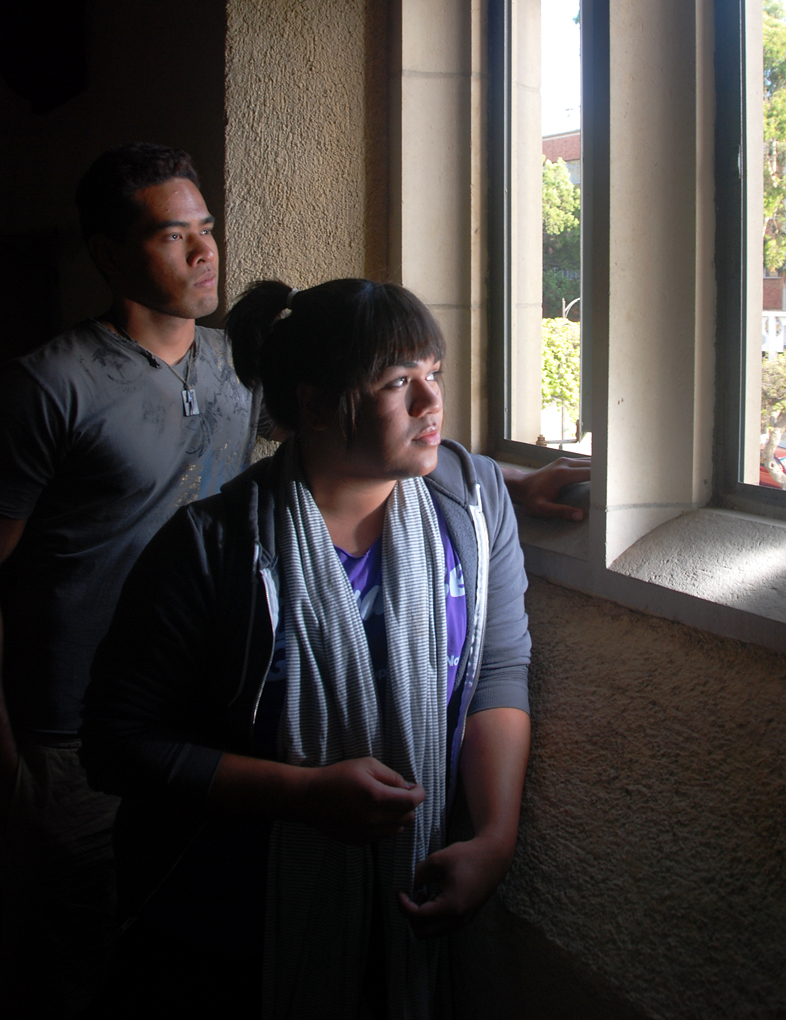Last Tuesday, Mikael received an unexpected call from her brother.
“He was crying so hard,” the second-year undecided student said. “He told me the tsunami hit home and that there was nothing we could do about it.”
Mikael’s friend, Andrew Ah Young, had a similar shock when he checked his Facebook the same day.
“Nothing like this has happened before,” the graduate student said, adding that when he began to see pictures of the disaster, the reality of the tsunami set in.
Both students are from American Samoa, a small island in the South Pacific Ocean . The island territory is characterized by a strong sense of culture and religion, as children speak Samoan as their first language and Christianity is a major influence, Ah Young said. While both Mikael and Ah Young emphasized that their homeland is a “very relaxed place,” the region has become the center of attention in light of the 8.3 earthquake and subsequent tsunami that occurred last week.
According to the Associated Press, the death toll for the disaster, which affected American Samoa, Samoa, and Tonga, has risen to 170, with dozens still missing amongst the rubble.
President Obama recently declared American Samoa a “major disaster,” paving the way for federal aid for the islands, according to the Agence France-Presse.
Currently, the Federal Emergency Management Agency has sent two relief teams to the region, while other organizations, like the American Red Cross, have already volunteered for rescue and recovery efforts, according to news reports.
However, beyond the statistics and logistical details lies the individualized stories of those who were affected.
Mikael described her emotional state immediately after hearing from her brother.
She said that although she found out about the disaster at 11 a.m., she was not able to reach her family in American Samoa until 4 p.m.
“When you can’t get through to your family, it’s the worst,” Mikael said.
Together, Mikael and her cousin, who is a full-time staff member at UCLA, attempted to contact family members. When they finally made contact, news was grim.
A wave had swept away some of Mikael’s cousin’s family members, she said, with a downcast look. In addition, Mikael’s grandfather’s old house was totalled and the first floor of his new home was heavily damaged. However, her grandfather was not harmed, as he had checked into the hospital the night before the tsunami, she said.
“We have tsunami warnings, but those happen a lot,” she said. “You always hear about this stuff, but I was not prepared for this.”
Immediately after hearing the news, Mikael considered leaving UCLA for the quarter and returning home.
However, her family convinced her otherwise, saying that there was nothing she could do.
Similarly, Ah Young said that the culture of American Samoa contributed to his emotional roller coaster.
“Our culture is centered around religion and family ““ it’s never one person by themselves,” he said. “That’s why when the tsunami struck, it was really hard. You can’t really live without your family ““ it’s very personal,”
Ah Young said that as soon as he heard about the tsunami, he immediately tried to call his mother, but no one picked up.
Eventually, he heard about the status of his family, all of whom were safe.
Since Ah Young’s parents live in the central part of the island, they did not feel the full impact of the wave, he said. However, he added that his grandparents in the coastal village of Fagasa were severely affected.
“All the houses were swept away, but everyone is alive and well and that’s what counts,” he said.
Like Mikael, Ah Young also thought about leaving the university for a quarter to go home and support his family. However, he decided against it, choosing instead to send money and return during winter break.
While it may seem early to think about the aftermath of this disaster, both Ah Young and Mikael see this as an opportunity for reflection.
“It’s a good wake-up call for me to put my priorities in order,” he said. “It’s definitely family first ““ you can get a degree later. … We’re really blessed ““ it could have been a lot worse.”
Mikael echoed these sentiments, saying that the American Samoa she will see during winter break will be very different from the one she left this past summer.
“Everything is totally trashed … but everyone is coming together to help clean up the village,” she said. “But you need to tell the people you love that you love them – you never know what happens.”
Editor’s Note: The original version of this story included Mikael’s last name. The Daily Bruin has removed it per her request.
